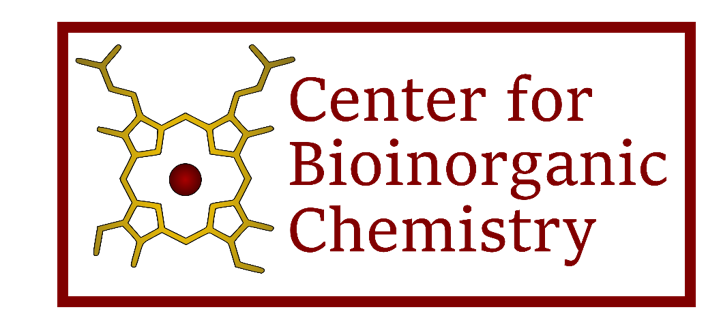Throughout Nature specific metals are bound by many different types of enzymes and participate directly in catalysis. The Center for BioInorganic Chemistry (CBIC) brings together researchers with interests in chemistry, biochemistry, molecular genetics, and microbiology to address problems involving the structure and function of metalloenzymes and the use of metal complexes as biological probes or drugs. The seven center faculty now sponsor over 50 graduate students and postdoctoral fellows. They have established strong interdisciplinary research programs that have resulted in joint publications, shared instrumentation grants, and funding for conferences. National and international meetings have been sponsored by the Center, including the premier meeting in the field, the International Conference in Biological Inorganic Chemistry (ICBIC), which was held in Minneapolis in 1999.
The goal of remaining in the top echelon of current and future research in the area of metalloenzyme catalysis requires the ability to use the techniques and strategies of many disciplines. This is manifested by CBIC faculty in three ways. First, effective research requires exceptional expertise by every faculty member in at least one core research area and cognizance of the potential insight to be gained from other research areas. Second, effective collaborations for long-term integrated joint research programs must be established between research groups with complementary skills. Third, effective methods must be established to exchange information with other research groups worldwide and to tap special expertise and/or instrumentation located anywhere in the world to solve specific problems. It was and is our primary goal through the establishment of the CMB to provide a framework to efficiently address each of these areas. Moreover, it is our goal to provide effective training for our students by giving them the opportunity to conduct first tier research in an environment that is functioning efficiently according to the three requirements set forth above. The individual expertise of the seven laboratories that participate actively in the Center is well established, and together they cover a very broad sweep of chemistry and biology. Collaborations are in place for many projects. We intend to continue to facilitate these collaborations and promote cross disciplinary student training.
